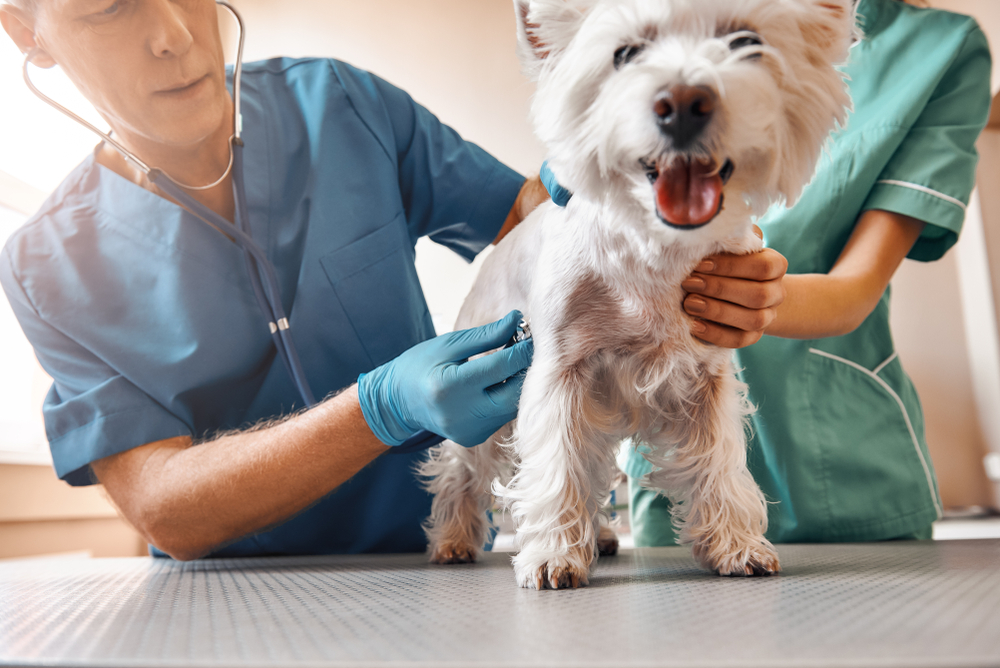What To Know Before Visiting a New Veterinarian

Taking your pet to a new veterinarian can be a daunting experience, whether you’re new to the area or just seeking a second opinion. When it comes to your furry friend’s health, choosing the right veterinary practice is crucial for ensuring they get the best care possible. It’s important to know what to expect, how to prepare, and what questions to ask. In this blog post, we’ll go over the essential do’s and don’ts when taking your pet to a new pet hospital, and what to expect from a checkup at a new pet hospital.
Finding the Right Veterinarian for Your Pet
When looking for a new veterinarian, the first step is to consider what your pet’s specific needs are. If your pet is elderly or has ongoing medical issues, finding a clinic with specialized services or experience in that area may be important. On the other hand, if you have a young, healthy pet, you may prioritize convenience or affordability. Always check the credentials of the veterinarian and the clinic itself. Look for certifications such as the American Animal Hospital Association (AAHA) accreditation, which ensures the clinic meets rigorous standards of veterinary care.
In addition to professional qualifications, take time to read reviews from other pet owners. Websites like Google and Yelp, as well as social media platforms, can provide insight into the experiences of other pet owners. Keep an eye out for mentions of the clinic’s customer service, the staff’s attitude toward animals, and how well they communicate with pet owners. When you find a clinic that meets your needs, don’t hesitate to call and schedule a visit to get a feel for the place.
Preparing Your Pet for the Visit
One of the most important steps when taking your pet to a new pet hospital is to prepare both yourself and your pet for the visit. This starts with gathering your pet’s medical history. Make sure you bring along any documentation regarding past treatments, surgeries, medications, or vaccinations. Many clinics will request your pet’s records before the appointment, so it’s a good idea to call ahead and have these transferred.
It’s also wise to prepare your pet for the experience. If your pet is nervous about car rides or visits to the vet, try to desensitize them beforehand. Take them on short trips or even just visit the parking lot of the new clinic to get them used to the environment. When possible, try to keep your pet calm during the journey, as anxious behaviors can sometimes exacerbate stress during the checkup.
If your pet has any specific fears or sensitivities, make sure to inform the new veterinarian. Whether it’s a fear of needles or being handled in certain ways, providing this information helps the veterinary team tailor the experience to make it as stress-free as possible for your pet.
What to Expect During the First Checkup
One of the biggest questions pet owners ask when visiting a new veterinarian is, “What to expect from a checkup at a new pet hospital?” The first appointment will typically begin with a thorough examination of your pet’s health. The veterinarian will start by reviewing your pet’s history, including any known medical conditions or treatments, and then move on to a physical exam. This can include checking your pet’s weight, temperature, coat condition, teeth, eyes, and overall body condition. Depending on your pet’s age and health, the veterinarian may also recommend additional tests such as bloodwork or x-rays.
During the first checkup, the veterinarian will also assess your pet’s behavior, energy levels, and any specific issues or concerns you may have brought up. It’s important to be prepared to discuss any changes in your pet’s behavior, eating habits, or potty routines, as these can often point to underlying health issues.
In many cases, the veterinarian may take a proactive approach to health care by discussing preventative measures such as vaccination schedules, flea and tick prevention, and dietary needs. The goal of this visit is not only to ensure your pet is healthy but also to establish a relationship with you and your pet. Expect the veterinarian to answer any questions you have about your pet’s care, as well as offer advice and recommendations for maintaining their overall health.
Building a Relationship with Your New Veterinarian
Establishing a strong relationship with your new veterinarian is just as important as the medical care they provide. Your veterinarian should be someone you trust and feel comfortable communicating with. Building this relationship takes time, but there are steps you can take during the initial visits to foster a good rapport.
Be open and honest about your pet’s health, lifestyle, and any concerns you may have. Whether it’s about behavioral issues, diet, or specific medical concerns, a good veterinarian will listen to your worries and offer guidance without judgment. Ask questions and make sure you understand the reasoning behind any recommendations or treatments they suggest. A good vet will not only provide you with clear explanations but will also encourage you to ask follow-up questions and seek second opinions if needed.
It’s also important to consider how well the veterinary team works together. Are they responsive to your inquiries? Do they make you feel like a valued member of the team? Communication is key in maintaining a good working relationship with your new veterinarian, and a responsive, approachable team can make all the difference when it comes to your pet’s health care.
The Do’s and Don’ts of Visiting a New Veterinarian
Visiting a new veterinarian can be a bit overwhelming, but keeping in mind a few do’s and don’ts can make the process smoother and less stressful. First, do be on time for your appointment. Veterinary clinics often run on a tight schedule, and arriving late can disrupt the flow of appointments and increase stress for both you and your pet.
Do bring your pet’s medical records and any necessary paperwork. Having all of your pet’s information on hand ensures that the veterinarian has the full picture of their health and can make informed decisions about their care. If you have questions about specific treatments or procedures, don’t hesitate to ask. A good veterinarian will be happy to provide you with all the information you need to make an informed decision.
On the other hand, don’t forget to inform the new veterinarian about any allergies or reactions your pet has had in the past. Also, avoid withholding any behavioral concerns. Even if they seem minor, letting the veterinarian know about any changes in behavior, eating habits, or physical symptoms can help diagnose potential health issues.
Lastly, don’t expect everything to be resolved in a single visit. Some conditions may require follow-up appointments or further tests, so be prepared for ongoing care. Trust the process, and understand that your veterinarian is doing their best to provide the highest level of care for your pet’s unique needs.
Conclusion
Visiting a new veterinarian doesn’t have to be a stressful experience if you’re prepared. By knowing what to expect, preparing your pet properly, and building a good relationship with your new veterinarian, you can ensure that your pet receives the best possible care. Taking the time to choose the right veterinary practice, being proactive in your pet’s health care, and establishing good communication with the veterinary team can all contribute to a long and healthy life for your pet. Whether it’s a routine checkup or a more specialized treatment, your veterinarian is there to help guide you through every step of your pet’s health journey.
Need a Small Animal Hospital in Pauls Valley, OK?
At Williamsburg Small Animal Hospital, we are dedicated to ensuring the well-being of your pets, especially during the scorching summer months. If you have any concerns about keeping your furry friends safe and healthy in the heat, don’t hesitate to reach out to us. Our team of experienced veterinarians is here to provide you with personalized advice and top-notch care. Contact us today to schedule an appointment or to learn more about our services. Let’s work together to keep your pets safe and happy all summer long!
